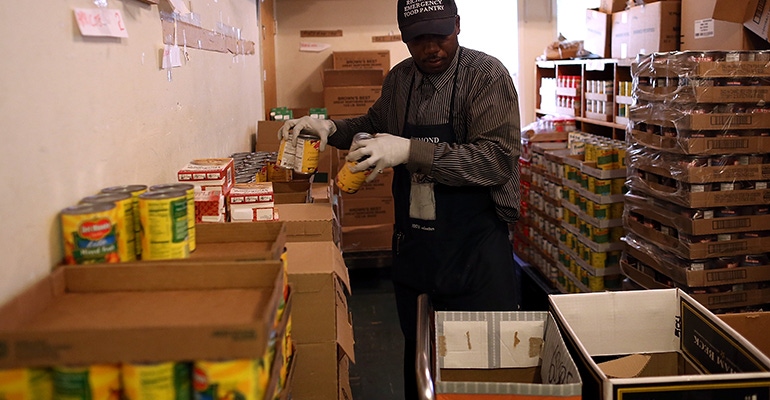Academy of Nutrition and Dietetics supports the bill but worries about food security for low-income adults.
January 2, 2019

The newest Farm Bill could decrease states’ flexibility to waive work requirements for people who receive benefits under the Supplemental Nutrition Assistance Program if a proposed rule is approved, according to the Academy of Nutrition and Dietetics.
The U.S. Department of Agriculture announced the proposal on Dec. 20, just hours before President Donald Trump signed the bill into law.
The rule, if enacted, would limit when states can request waivers for the length of time able-bodied adults without dependents could receive SNAP benefits without working. In addition, the rule would reduce the percentage of those waivers that could be carried over to the following fiscal year.
 “The farm bill, as signed into law, reinforces the inherent link between agriculture and nutrition by fostering access to nutrient-dense foods that promote health and providing consumer education that increases nutrition literacy and life management skills,” said Mary Russell, registered dietitian nutritionist and the academy’s president.
“The farm bill, as signed into law, reinforces the inherent link between agriculture and nutrition by fostering access to nutrient-dense foods that promote health and providing consumer education that increases nutrition literacy and life management skills,” said Mary Russell, registered dietitian nutritionist and the academy’s president.
“The bipartisan farm bill ensures the integrity of the Supplemental Nutrition Assistance Program, while making targeted improvements for seniors and people with disabilities and modernizing systems and technology.”
The USDA’s proposed rule, however, would affect people’s eligibility for SNAP—commonly referred to as food stamps—which the Academy believes is highly effective in preventing food insecurity and alleviating poverty. The program also is linked with improved health and lower health-care costs.
“SNAP helps one in eight Americans put food on the table and keeps more than 8 million people out of poverty. The Academy supports efforts to ensure states have the flexibility needed to improve people’s food security,” Russell said.
The Farm Bill will improve coordination of SNAP-Ed with other nutrition education programs and take steps to increase accountability and reporting of outcomes, as well as sharing of information between states through an information clearinghouse. The coordination of programs would not be affected by USDA’s proposed rule.
“Access to food is a key component of reducing food insecurity. Nutrition education through the SNAP-Ed program affords participants the opportunity to budget for and prepare healthy foods and maximize their purchasing ability,” Russell said.
The USDA will seek comments on the rule for 60 days after the proposal is published in the Federal Register. However, because of the government shutdown, the Federal Register is not being supported.
After the rule is published, interested parties may submit comments at http://www.regulations.gov (which is disabled as of Jan. 2) or via mail at Certification Policy Branch, Program Development Division, FNS, 3101 Park Center Drive, Alexandria, Virginia, 22302.
Source: Academy of Nutrition and Dietetics
You May Also Like


